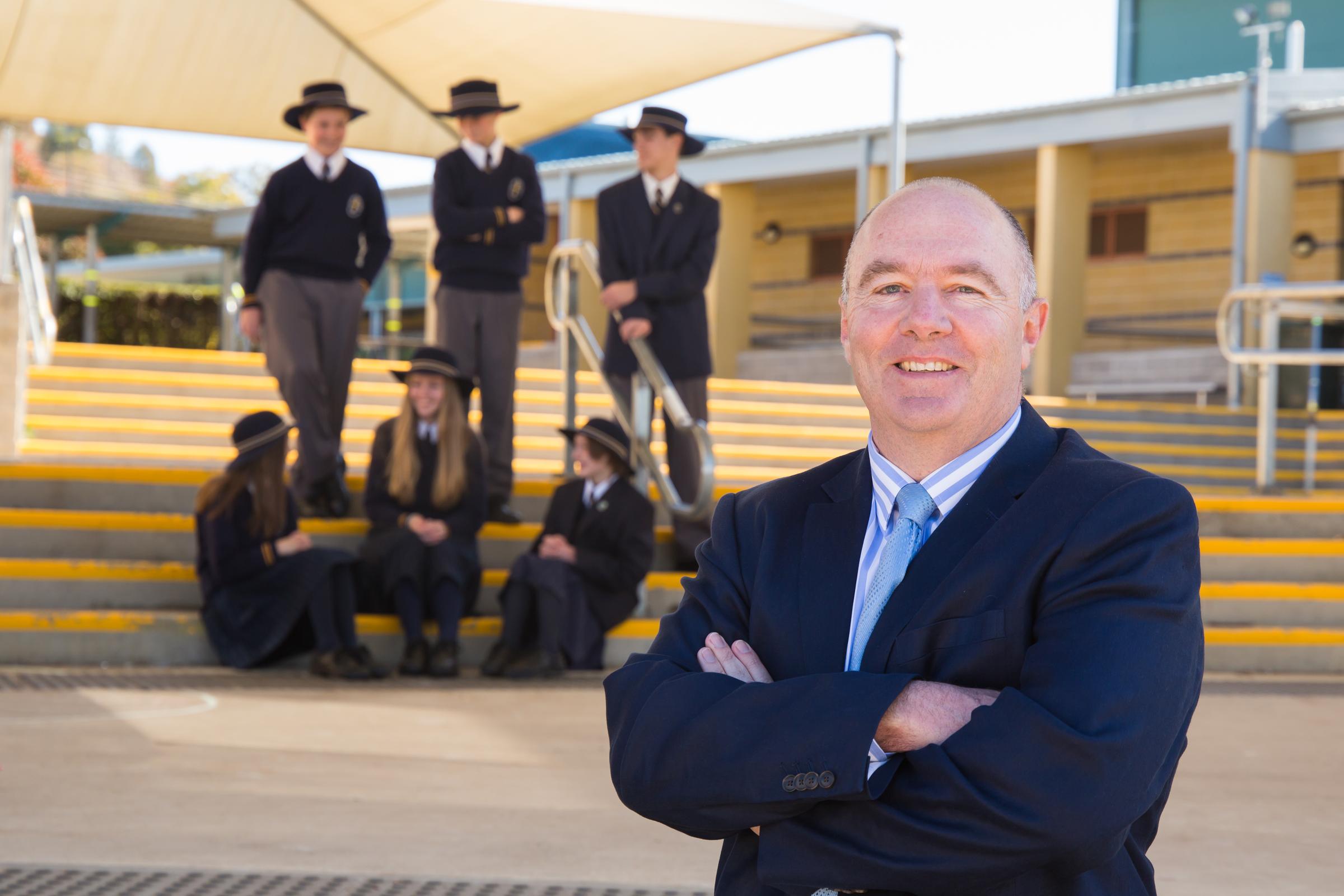Assistant Principal - Pastoral Care

Inviting Confusion to Learn
Several years ago I embarked on a process of trying to do chin-ups as a means of enhancing my exercise. One of the most important lessons I have learned from this has been forcing myself to do an extra chin-up even though physically I am unable to do so. Each time I try to do this chin-up, while not being able to rise to the target, my body actually becomes stronger in the attempt. Eventually, by persevering, I get there. Mentally I can’t allow myself to become discouraged when at first I fail and continue to fail. I have to keep telling myself that I am getting there and eventually will succeed.
Learning is much like my own experience when doing chin-ups. Whenever we encounter new knowledge we actually feel as if we have gone backwards – we might feel confused or disoriented. This is quite natural because learning is not a purely logical exercise where we stack one block of knowledge on top of the other. This process of feeling confused and as if we have gone backwards is actually a reflection of our brain wrestling deeply with the new knowledge. As our brain wrestles with the new material it is in the process of restructuring our understanding. We have to allow time for our brain to do this and thus not become despondent, when at times we feel confused, because confusion is critical if we are to progress.
For young people growing up in a culture where we are constantly urged to get everything we need at the push of a button or the downloading of an app, this can be a real blockage to learning. Instant gratification is at the heart of our consumer driven society and thus learning appears to be a chore that is not worth the effort. School and learning have become counter-cultural exercises that young people find disturbing to their sense of self.
To become a stronger, more effective learner, students need to invite confusion, to see it not as an end point but as a step in the movement towards mastery. To persevere with learning activities designed by their teachers, as ultimately, this will provide opportunities for them to work their way from confusion towards understanding.
I have often witnessed this process in English, particularly when students encounter a new poem or study Shakespeare. At first students feel that they have been given something in a foreign language which is incomprehensible and meaningless. Gradually, step by step, we work our way through the text moving from confusion to comprehension to control and eventually, command of the new knowledge. As students’ progress through school their ability to do this more independently, to find their own insights and understanding grows – their confidence flourishes as they realise that learning is a process that has stages and confusion is just a sign that you are coming to terms with the new material.
Parents and carers can support their student in becoming a stronger learner by:
- Emphasising that confusion is an indicator that they are engaging with the new material and to be patient – mastery is on the other side of hardship. Resist the urge to share that you were ‘never good at Maths’ or ‘I could never spell properly either’ - otherwise you risk creating a mindset in your student that learning is something others are good at. For example we would never take this approach with driving a car or baking a cake. If something can be learned then everyone can learn it to some degree.
- Encourage your student to discuss what they feel they are struggling with and rather than jumping in with immediate solutions, lead them towards what they need to do through asking questions – what are you struggling with? What do you need to know to move ahead? What resources do you have or need to have to move ahead? Where will you look for this? What have you seen the teacher in class do or other students?
- Suggest taking a break and to come back to the task with ‘fresh eyes’ – when doing Sudoku puzzles I often need to use this strategy and when I return I find the next move which previously I was unable to see even though it was staring me in the face all of the time.
Below is advice from one of the great learning mentors in literature, Merlin:
“The best thing for being sad," replied Merlin, beginning to puff and blow, "is to learn something. That's the only thing that never fails. You may grow old and trembling in your anatomies, you may lie awake at night listening to the disorder of your veins, you may miss your only love, you may see the world about you devastated by evil lunatics, or know your honour trampled in the sewers of baser minds. There is only one thing for it then — to learn. Learn why the world wags and what wags it. That is the only thing which the mind can never exhaust, never alienate, never be tortured by, never fear or distrust, and never dream of regretting. Learning is the only thing for you. Look what a lot of things there are to learn.”
T.H. White, The Once and Future King
Mick Larkin - Assistant Principal - Pastoral
